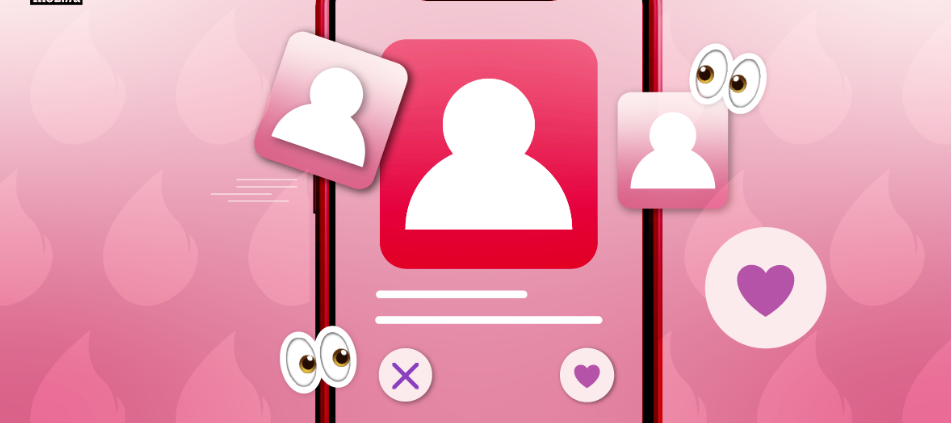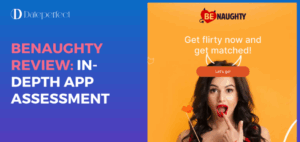Whether it’s Badoo, Parship, or Tinder, dating apps let you meet new people: whether for quick sex, to fall in love, or to make friends. To find the right partner, users voluntarily entrust the apps with a lot of personal information. But is it safe? Stiftung Warentest tested dating apps from 22 providers. Most reveal too much. Only five apps provide acceptable data protection.
The apps store a lot of personal information
The dating app Grindr is aimed at gay men. It allows them to easily find contacts in other countries – even abroad. The problem: The app sends location data the first time it’s launched. In homophobic countries, this can become a threat. Most users of such apps want only one thing: to meet new people, whether for quick sex, to fall in love, or to make friends. To find the right partner, they voluntarily entrust the apps with a lot of personal information, such as their sexual orientation, age, and location.
Only five apps handle data well
The data isn’t always in safe hands there, as our review shows. We examined the privacy policies of the providers of 22 dating apps. For iOS and Android, we examined the apps’ data transmission behavior, i.e., whether the programs reveal more about the user than necessary. From a data protection perspective, only five apps are acceptable, including just one for iOS.
HIV status passed on to partner companies
The impact of inadequate data protection is demonstrated by a recent incident that came to light shortly after the publication of our test: As Scott Chen, Chief Technology Officer at Grindr, announced following media reports on April 3, 2018, the company had shared sensitive member data such as location information and HIV status with partner companies. Two of them were specifically named: Apptimize and Localytics. According to Chen, Grindr only uses these services to improve its own product. According to Buzzfeed , Grindr has since assured that it will no longer share this data in the future. However, the incident shows how important it is for users to carefully consider what information they share about themselves.
This is what the test offers: Data security for dating apps
Test results.Our table shows ratings for the data transmission behavior of 22 dating apps, each available in versions for iOS and Android. The vast majority of apps sent data that was not necessary for their operation, such as the smartphone’s device identification number and the name of the mobile provider. Only one app is unproblematic for both iOS and Android. Three others are acceptable, at least in the Android version.We tested these apps:Badoo, Bildkontakte, Bumble, C-Date, eDarling, Elite Partner, Grindr, Happn, Jaumo, Joyce, KissNoFrog, Lesarion, Lovescout24, Lovoo, MeetMe, Neu.de, Once, Parship, Romeo, Tinder, Twoo, Zoosk.Interview.Consumer advocate Susanne Baumer on subscription traps, fake profiles and other scams.Magazine article.If you unlock the topic, you will get access to the PDF of the article from test 3/2018.
Curious and indiscreet
After logging into the app, users create their profile. Here, they sometimes enter very personal information, such as their sexual orientation, age, or place of residence. The apps don’t always handle this information responsibly, as our review shows. We examined the providers’ privacy policies. For iOS and Android, we examined the apps’ data transmission behavior, i.e., whether the programs reveal more about the user than necessary. This included well-known apps like Tinder, Lovoo, and Parship – as well as apps aimed at a gay audience, such as Grindr and Lesarion.
Most reveal too much
From a data protection perspective, many apps exhibit significant weaknesses. They reveal data that is unnecessary for their use. Numerous providers reserve the right to share this information with “third parties.” At this point, the user loses control over their data. Who receives what information, and to what extent, remains unclear. The “third parties” are large advertising companies that, coupled with a smartphone’s device identifier, can create user profiles. They market these profiles for personalized advertising. Facebook is also one of these “third parties.” The social network also earns money from its users’ data. Every crumb of information completes the picture.
The dilemma of online dating
In general, users should be careful with their personal data because it is publicly accessible. However, it’s difficult to find a partner anonymously. A certain degree of openness is essential for online dating. Users must therefore weigh up the following: How cautious do I want to be with my data and how open do I want to remain at the same time?





